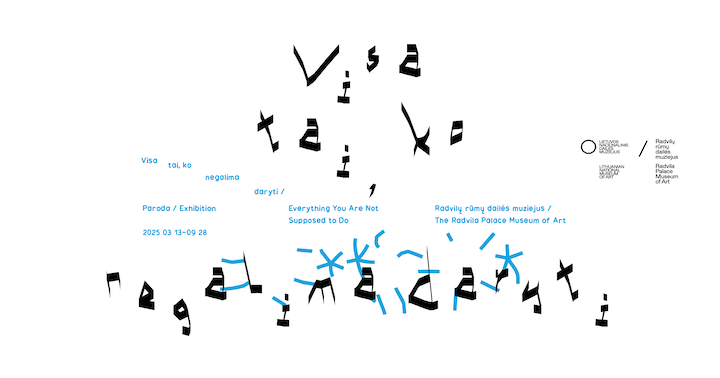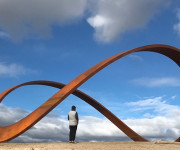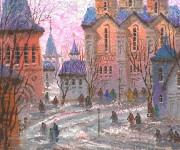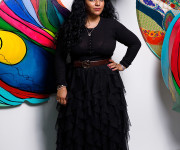On March 13, the Radvila Palace Art Museum will open the exhibition “All That Cannot Be Done,” inviting visitors to rethink the rules of the art world. Curator Monika Kalinauskaitė brings together contemporary female artists and historical painting collections, opening new interpretations and provoking questions about the place of women in art history.
The Radvila Palace Museum permanently exhibits nearly 100 artworks from the 16th–19th centuries, originating from Italy, Spain, the Netherlands, France, and Germany. However, this time, contemporary female artists find their place among these historical canvases—their works act as a living response that deconstructs, complements, or even challenges traditional iconography. This artistic confrontation offers an opportunity to reassess both contemporary artistic directions and historical narratives.
Kalinauskaitė has specifically focused on works created over the past 25 years—a period marked by geopolitical, social, and technological changes. The exhibition presents not only experimental paintings, photography, video art, and textile pieces but also works that speak of what has long been uncomfortable, inappropriate, or even forbidden.
“There are things you simply cannot do in a museum. You cannot shout, you cannot kiss under the watchful eyes of figures captured in paintings, you cannot argue with a certain version of the truth. But art always seeks ways to speak about what is restricted and what remains unspoken,” says Kalinauskaitė.
This concept is reflected in the exhibition’s selected works. For instance, “Songs from Compost” (2020) by Eglė Budvytytė, in collaboration with Marija Olšauskaitė and Julija Steponaitytė, portrays nature as an uncontrollable force that does not fit within conventional categories. Meanwhile, Agnė Juodvalkytė’s painting “(Y) Wedding” (2021) deconstructs traditional themes, turning rituals into an abstract atmosphere.
The works of these female artists challenge not only the museum space but also the perception of art itself—must everything always remain in its designated place? The exhibition encourages a rebellious gaze at history, not just by applying new narratives but by prompting a reevaluation of long-standing dogmas.
The exhibition will be accompanied by discussions, educational events, and guided tours with museum guides and the curator herself. On the opening night, the encounter between past and present will be symbolically marked by a performance from the queer archive “išgirsti” (to be heard).
“All That Cannot Be Done” will be on view at the Radvila Palace Museum of Art until September 28, 2025—an open invitation to reflect on where the boundaries of art truly begin and end.
Artists: Eglė Budvytytė, Janina Gražina Degutytė-Švažienė, Laura Garbštienė, Kristina Inčiūraitė ir Rita Mačiliūnaitė, Agnė Juodvalkytė, Geistė Marija Kinčinaitytė, Danutė Kvietkevičiūtė, Aurelija Maknytė, Relita Mielė, Elena Narbutaitė, Eglė Rakauskaitė, Gintarė Sokelytė, Regina Šulskytė.













